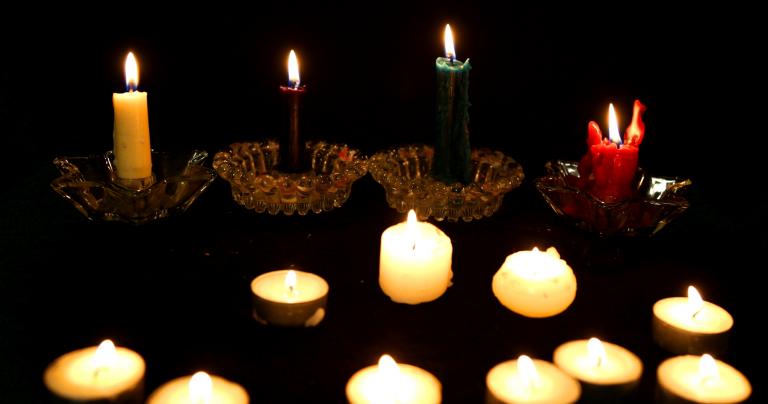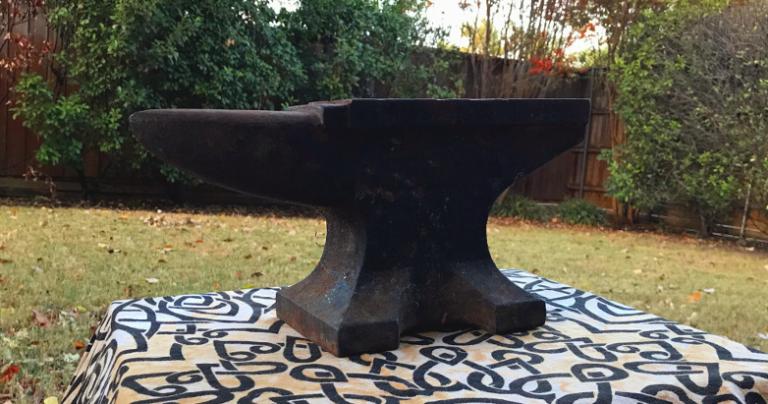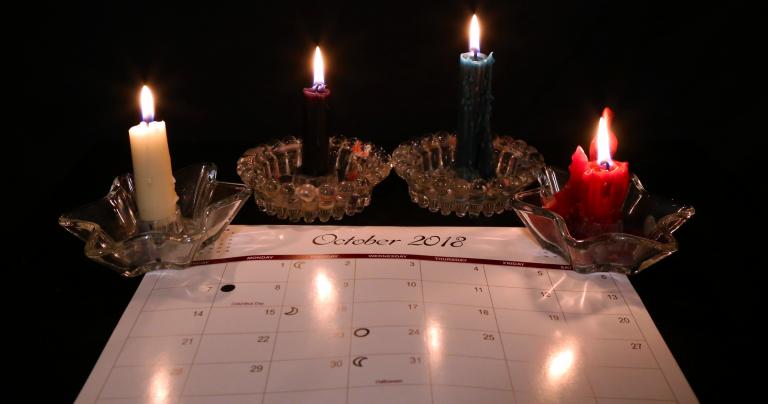Another question from Conversations Under the Oaks asks a very simple but very deep question:
Do you have any tips or suggestions for starting a group from scratch?
If you can’t find the kind of group you need where you are, or if you’re called to establish something that doesn’t exist yet, then you’ve got a big job ahead of you. But it can be done.
I can’t tell you how to find people for your new group. The only times I’ve done this have been when several people said “we really need a new organization for this” – our core group was already present. After that people found us… or were sent to us.
Don’t try to do this alone
The idea or the desire or the call may start with you – somebody has to be the first one to stand up and say “hey, I think we should do this.” But before you start doing anything, find two or three more people who will do it with you.
Starting a group is too much work for any one person to do. You need someone to bounce ideas off. At least one of them needs to be someone who’s not afraid to tell you “that’s a really bad idea, and here’s why.”
More than that, though, having multiple leaders greatly reduces the chance of any one of them getting an inflated ego and turning the group into a cult. Including you.
What is the core purpose of your group?
You want to start a Pagan group? Great. Will it be Nature centered, Deity centered, Self centered or Community centered? You want to start a polytheist group? Which pantheon? Which deities? If one person wants traditional witchcraft and another wants non-Gardnerian Wicca and another wants devotional polytheism, you’re going to have conflicts from the beginning.
Is this a private coven? An open circle? A teaching group? Will you be active in the wider community?
Any and all of these are good and valid purposes. Just make sure you’re all in agreement with why you’re forming a new group.
Quietly invite others you think would be interested
Three people can get a group started. But to do much of anything, you need a few more. The sooner you bring them in, the sooner they can start being a part of it all… and the more voices you have when you start the foundational and structural work.
This isn’t the time to announce it on Facebook and bring in people you don’t know. Rather, it’s the time to invite people who may not have the skills or desire to be a primary leader (and so they weren’t on your list for the “hey, I think we should do this” call) but who share your outlook and goals and would be willing to contribute in a meaningful way.
But be quiet about it, so you don’t have to say “no” to someone who wouldn’t be a good fit with the group, or someone whose needs would detract from the startup – even though they might make a good member once you’re up and running. Now is not the time to start training beginners.
Write a mission and vision statement
This is what you’re doing to do. It’s how you’re going to serve your core principles and values.
Ten or fifteen years ago, mission and vision statements were the trendy thing in business: create a pithy mission statement that sums up who you are and what you do. A lot of that trendiness carried over into the religious world, and a lot of those mission and vision statements weren’t very good. A mission statement alone doesn’t accomplish anything.
But if you can’t explain who you are and what you do in a few words, you probably don’t know. And if you don’t know, you’re probably going to be going in too many discordant directions to get anything done. Take the time to iron this out up front.
Write a set of by-laws
How will your new group be governed? How will decisions be made? What are the requirements for membership and how will potential members be vetted and approved? Perhaps most importantly, how will the group handle accusations of serious wrong-doing by its members? Just because you know and trust and like everyone in the group, don’t assume you’ll never have an incident of sexual harassment, racial bigotry, or embezzlement. Figure out up front how you’re going to handle things before you need to do it.
This mundane, institutional work is boring, tedious, and decidedly non-spiritual. It’s also absolutely necessary. When religious, spiritual, and magical groups fail, it is rarely because they did something that offended the Gods or because their spells backfired on them. It’s because humans did what humans do, some humans got hurt, and the humans in charge didn’t respond appropriately. Good processes and procedures make it much more likely you’ll respond appropriately.
Conduct a founding ceremony
This can be as simple as lighting a candle and having everyone sign a piece of paper with the name of your group on it. It can be a group ordeal to create a bond between the founding members. It can be an ecstatic journey to obtain the aid and endorsement of patron deities, ancestors, or other spiritual allies. Exactly what your founding ceremony should look like depends largely on the focus of the group.
“Founding” requires a foundation – what is the spiritual foundation of your group?
Create an on-line presence
These days if you’re not on the internet you don’t exist. Of course, if you’re going to create a truly occult (i.e. – hidden) group, then you may not want an on-line presence. That’s fine, but make that decision consciously, not by ignoring it. If you’re going to be a public or semi-public group, you need a web page. Not a Facebook page or a Twitter account, but an on-line presence that you own and control and aren’t dependent on an algorithm get your message out.
You will almost certainly need to use social media. But anchor your presence on something that isn’t subject to the whims of Mark Zuckerberg.
Don’t try to do too much too soon
In the heady rush of a spiritual experience, you may feel like your new group needs to hold public rituals and teach classes and do community service and let’s have a movie night and a camping trip and before you know it you’re overscheduled, overloaded, and burned out before you even get started.
Do one or two things well. Then add something else. But for the love of all the Gods, when you say you’re going to do something, do it. Nothing will kill a group’s reputation faster than last-minute cancellations.
Review, revise, and repeat
Your core leaders – the ones who fill the key roles you named in your by-laws – need to meet regularly in the early going to discuss how things are going. If the group is small enough maybe you all meet.
Sit down over coffee or wine or something and talk about your mission, your goals, your plans, and how you’re doing. Is it time to add something? Do you need to drop something? Are problems coming up that you hadn’t expected?
Your mission should rarely change and your core values should never change. But how you carry them out needs to be constantly reviewed and revised. If it’s working, keep doing it. If it’s not, do something else instead. If you leave your car on cruise control and never look at the road ahead sooner or later you’re going to run into something.
Measures of success
I have no data on the average lifespan of a Pagan group. I would guess it’s one to three years – groups come and go quickly. Even groups that last for years rarely survive the death or departure of their founders.
But if you’re trying to start a local Pagan group, you’re not trying to start the next OBOD. You’re trying to provide a safe and welcoming space for those who share your core purpose and support your mission. If you serve your Gods and your community for five years or two years or even six months, that’s a good thing. You will have done some good and necessary work – and you will have learned something for next time.
Starting a new Pagan group is a big job and a big responsibility – do not undertake this lightly. But it is sacred work. If nothing else is available, someone has to build it.
Why not you?




















